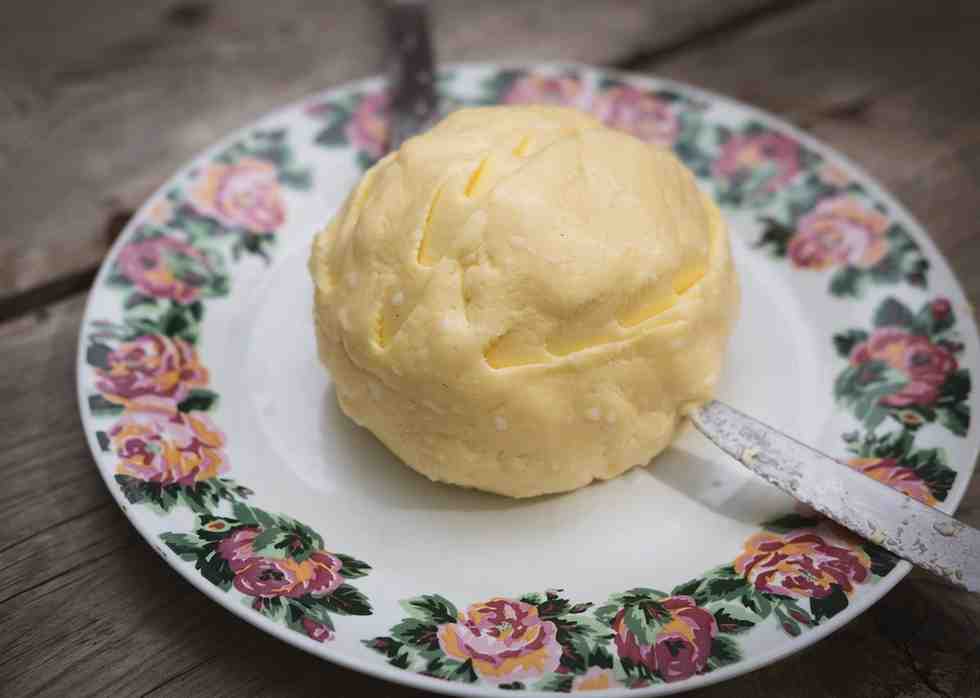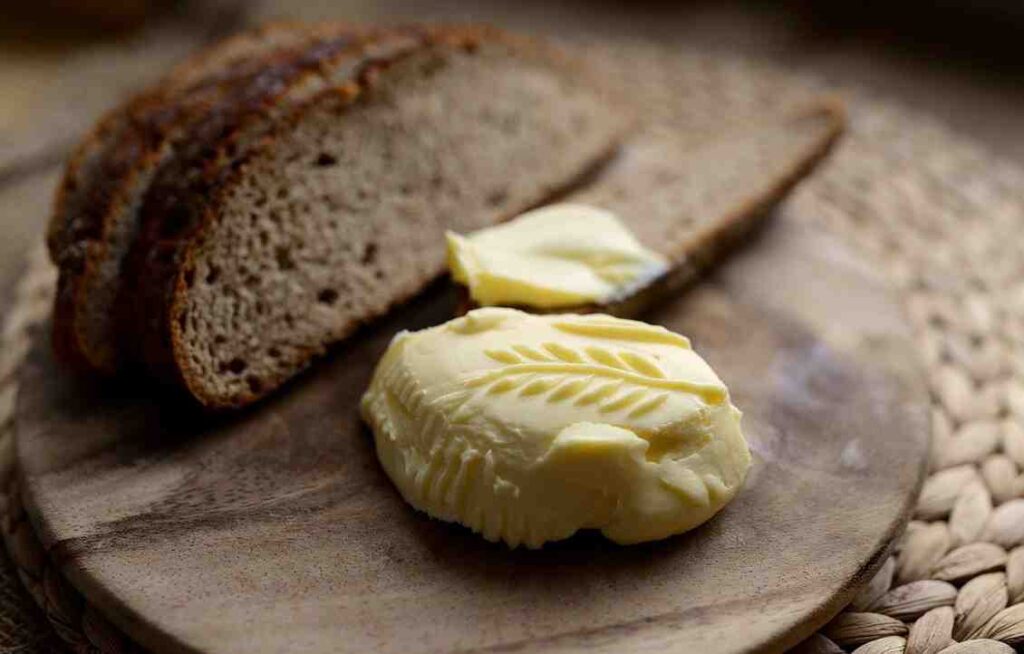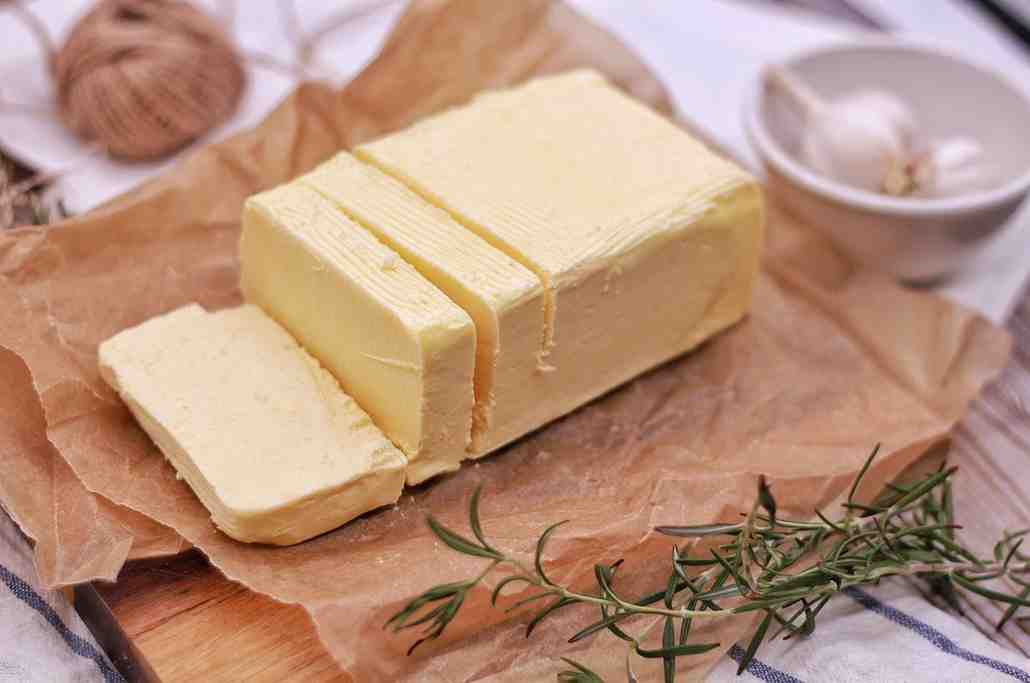Smoked butter is a culinary treasure that adds a rich, smoky flavor to both sweet and savory dishes. Known for its creamy texture and unique aroma, it has become a staple in gourmet kitchens worldwide. Whether used for grilling, baking, or as a simple spread, smoked butter transforms everyday recipes into something extraordinary. This versatile ingredient, made by infusing butter with wood smoke, is surprisingly easy to make at home and offers countless possibilities for enhancing your cooking.
What is Smoked Butter?
Smoked butter is traditional butter infused with wood smoke, enhancing its creaminess and adding depth without overpowering its flavor. Using woods like hickory, applewood, or cherry wood imparts distinct smoky profiles, from bold and earthy to mild and sweet. The natural smoking process preserves the butter’s texture, making it versatile for spreading, cooking, and baking, offering a rich, nuanced flavor compared to artificially flavored alternatives.
Origins
The origins of smoked butter can be traced back to ancient preservation techniques. Smoking was historically used to extend the shelf life of perishable foods, such as meat and dairy, while simultaneously enhancing their flavor. Over time, this method evolved from being purely practical to a sought-after culinary technique.
Benefits of Smoked Butter
Smoked butter offers several unique advantages that go beyond its flavor. From enhancing recipes to adding a gourmet touch, it is an ingredient that deserves a place in every kitchen.
Enhances Flavor
The smoky notes in smoked butter amplify the taste of dishes, creating a richer and more complex flavor profile. A small amount of smoked butter can make a big difference, turning ordinary recipes into memorable culinary experiences. For instance:
- Adding a dollop of smoked butter to creamy soups can introduce an earthy depth.
- In sauces, it enhances the overall flavor without the need for additional seasoning.
- When used in desserts, it creates a subtle contrast between sweet and savory, resulting in a unique taste.
By introducing these smoky nuances, smoked butter complements a wide range of ingredients, from robust meats to delicate pastries.
Versatility in Cooking
One of the most appealing aspects of smoked butter is its versatility. It seamlessly transitions between savory and sweet dishes, making it suitable for virtually any cuisine. For example:
- Savory Use: Incorporate it into grilled meats, roasted vegetables, or mashed potatoes for added richness.
- Sweet Use: Use it as a base in baked goods like cookies, cakes, or pie crusts for a subtle smoky twist.
- Everyday Use: Spread it on fresh bread or toast for a simple yet indulgent snack.
This adaptability makes smoked butter a must-have ingredient for both casual home cooks and professional chefs.
Gourmet Appeal
Incorporating smoked butter into your recipes instantly elevates the dish, giving it a restaurant-quality feel. Its unique flavor profile and artisanal quality make it a favorite among gourmands and culinary professionals. Using smoked butter as a finishing touch can leave a lasting impression, whether you’re entertaining guests or simply cooking for yourself.

How to Make Smoked Butter at Home
Creating smoked butter at home is a fun and rewarding process that lets you tailor the flavor to your liking. With a few simple tools and ingredients, you can make fresh, aromatic smoked butter that elevates your dishes.
Tools and Ingredients
Tools:
- Smoker (electric, charcoal, or stovetop)
- Aluminum foil or parchment paper
- Wire rack or tray for holding the butter
Ingredients:
- Unsalted butter: 454g (16 oz) unsalted butter (equivalent to 4 sticks or 2 cups
- Wood chips: Choose based on your flavor preference:
- Hickory: Bold, earthy flavors
- Applewood: Sweet, mild profile
- Cherry wood: Subtle fruity aroma
Step-by-Step Instructions
1. Prepare the Butter
- Start with 454g (16 oz) of unsalted butter. This is equivalent to 4 sticks or 2 cups of butter.
- Cut the butter into small cubes or blocks, about 1-inch (2.5 cm) in size.
- Smaller pieces allow for better smoke absorption, ensuring a rich, smoky flavor throughout the butter.
2. Set Up the Smoker
- Preheat your smoker to a very low temperature between 80°F and 100°F (27°C to 38°C).
- Keeping the temperature low is crucial to prevent the butter from melting while allowing the smoky flavors to infuse.
- If using a smoker with a temperature control feature, set it to the lowest setting available.
3. Add Wood Chips
- Choose a wood chip variety based on your flavor preference:
- Hickory – Strong, traditional smoky flavor.
- Applewood – Sweet and mild, ideal for a subtle smokiness.
- Cherry wood – Light and fruity, perfect for a delicate aroma.
- Measure ½ cup (about 30g) of wood chips and place them in the designated area of your smoker.
- Follow your smoker’s manufacturer instructions for adding and maintaining the wood chips.
4. Smoke the Butter
- Place the prepared butter cubes on a wire rack or heatproof tray inside the smoker.
- Ensure the butter is not directly over the heat source, as this will cause it to melt.
- Allow the butter to smoke for 30 to 60 minutes.
- For a lighter smoke flavor, remove after 30 minutes.
- For a stronger, richer smokiness, leave it in for the full 60 minutes.
- Check occasionally to ensure the butter retains its shape and does not soften excessively.
5. Cool and Store
- Once the smoking process is complete, carefully remove the butter from the smoker.
- Allow it to cool completely at room temperature before handling.
- Wrap the smoked butter in parchment paper or transfer it into silicone molds to shape it neatly.
- Store in an airtight container in the refrigerator for up to 2 weeks or in the freezer for up to 6 months.
Customization Ideas
- Herb-Infused Butter: Add fresh herbs like rosemary, thyme, or sage to the butter before smoking for a more complex flavor.
- Spiced Butter: Sprinkle smoked paprika or chili powder on the butter for a touch of heat.
- Flavored Wood Chips: Experiment with options like mesquite or pecan for unique smoky profiles.
Culinary Uses of Smoked Butter
Smoked butter’s versatility shines in its ability to enhance both savory and sweet dishes. It can be used as a core ingredient or as a finishing touch to add depth to flavors.
Savory Applications
- Grilled Meats: Brushing smoked butter over steaks, chicken, or pork adds a smoky richness. It melts into the meat, creating a flavorful crust.
- Vegetables: Toss roasted or grilled vegetables like asparagus, zucchini, or sweet potatoes with melted smoked butter for an earthy finish.
- Pasta and Risotto: Stir a knob of smoked butter into creamy pasta dishes or risottos to infuse them with a subtle smoky undertone.
- Soups and Stews: Add a dollop of smoked butter to creamy soups like chowder or pumpkin soup for a richer texture and flavor.
Sweet Applications
- Baked Goods: Substitute regular butter with smoked butter in cookie or cake recipes for a unique twist. The smoky flavor adds a savory balance to sweet treats.
- Pancakes and Waffles: Spread smoked butter on warm pancakes or waffles for a breakfast that feels indulgent yet refined.
- Ice Cream: Incorporate smoked butter into homemade vanilla ice cream for a bold, sophisticated dessert.
Innovative Uses
- Cocktails: Add a small cube of smoked butter to whiskey-based cocktails, like an Old Fashioned, for a richer, smokier experience.
- Infused Oils: Mix melted smoked butter with olive oil for a versatile drizzle over salads or crusty bread.
- Global Cuisine:
- Use smoked butter as a base for Indian curries to add complexity.
- In Mediterranean dishes, blend it into hummus or serve it alongside grilled flatbreads.
- Pair it with American BBQ for a smoky glaze on ribs or wings.

Commercial vs. Homemade Smoked Butter
When incorporating smoked butter into your kitchen, you may wonder whether to buy it pre-made or make it yourself. Each option has its own set of advantages.
Advantages of Store-Bought Smoked Butter
- Convenience: Pre-made smoked butter is ready to use and ideal for busy cooks.
- Consistency: Professional smoking techniques often ensure a uniform flavor and texture.
- Availability: Many specialty food stores and online retailers offer high-quality smoked butter.
Benefits of Homemade Smoked Butter
- Customization: You control the intensity of the smoky flavor and can experiment with different wood types and herbs.
- Freshness: Homemade smoked butter often tastes fresher, free from preservatives or artificial additives.
- Cost-Effectiveness: Making your own smoked butter can be more economical, especially for frequent use.
For those who value convenience, store-bought smoked butter is a great option. However, for culinary enthusiasts who enjoy experimenting, homemade smoked butter offers unmatched flexibility.
Storage and Preservation Tips
To fully enjoy smoked butter, proper storage is essential. Whether you make it at home or buy it, these tips will help you maintain its quality and flavor.
Short-Term Storage
- Refrigeration: Store smoked butter in an airtight container to prevent it from absorbing odors from other foods.
- Portioning: Divide the butter into smaller portions before storing, so you only take out what you need.
Long-Term Storage
- Freezing: Wrap smoked butter tightly in plastic wrap or parchment paper, then place it in a freezer-safe bag. This method preserves the smoky aroma and creamy texture for up to three months.
- Labeling: Always label your containers with the date to track freshness and ensure proper rotation.
Avoiding Common Storage Mistakes
- Inadequate Wrapping: Exposed butter absorbs odors quickly, diminishing its flavor.
- Temperature Fluctuations: Keep butter in a stable environment to avoid melting and refreezing, which can alter its texture.
Tips and Tricks for Perfect Smoked Butter
| Tips for Success | What to Avoid |
|---|---|
| Use High-Quality Butter: Opt for unsalted butter to control the saltiness and achieve a clean, rich flavor. | Using Salted Butter: Salt can intensify during smoking, leading to an overpowering taste. |
| Cut Butter Into Small Blocks: Smaller pieces allow for even smoke exposure and consistent flavor. | Leaving Butter in Large Blocks: Uneven smoke absorption results in an inconsistent taste. |
| Preheat Smoker to a Low Temperature: Maintain the smoker at 80°F to 100°F to prevent the butter from melting. | Smoking at High Temperatures: Butter melts easily, losing shape and texture under high heat. |
| Choose the Right Wood Chips: Match wood types to your flavor preference (e.g., hickory for boldness, applewood for sweetness). | Overloading Wood Chips: Too many chips can produce harsh, overpowering smoke flavors. |
| Monitor the Butter Regularly: Check periodically during smoking to ensure it holds its shape. | Neglecting to Monitor: Butter left unattended may melt or absorb too much smoke, becoming bitter. |
| Cool Butter Completely: Allow butter to cool fully before storing to retain flavor and texture. | Storing Butter While Warm: Warm butter can sweat, leading to changes in texture and flavor. |
| Experiment with Customization: Add herbs or spices before smoking to enhance the flavor profile. | Skipping Customization: Missed opportunity to create unique flavors that suit your dishes. |
| Store Properly: Use airtight containers to preserve the smoked flavor in the refrigerator or freezer. | Improper Storage: Exposing butter to air can cause it to lose its smoky aroma and develop off-flavors. |

